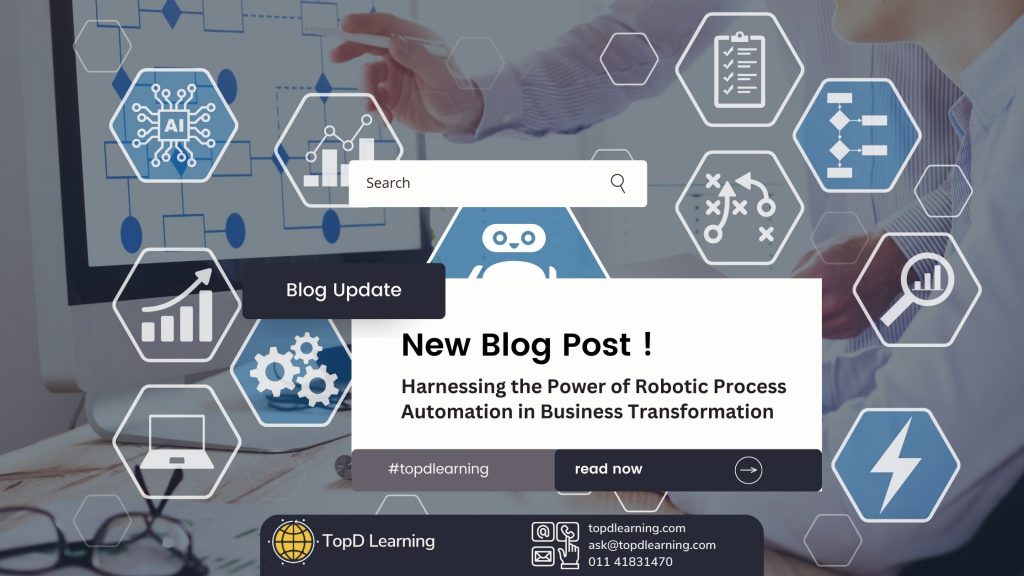Explore the transformative power of Robotic Process Automation (RPA) and its pivotal role in reshaping business operations. This comprehensive guide delves into RPA’s applications, benefits, and future in the realm of business transformation.
Introduction
In the era of digital revolution, enterprises are persistently seeking cutting-edge solutions that optimize operations, amplify productivity, and catalyze growth. Among the myriad of technological advancements, Robotic Process Automation (RPA) stands out as a game-changer, significantly influencing the way businesses operate. Why is that so? Let’s find out..
Table of Content
- Unravelling Robotic Process Automation (RPA)
- The Crucial Role of RPA in Business Transformation
- Prime Benefits of Implementing RPA in Business Processes
- The Future Horizon: Prospects of RPA in Business Transformation
Unravelling Robotic Process Automation (RPA)
- What is RPA?
RPA, a form of business process automation technology, utilizes software robots, or “bots”, to undertake routine tasks that were traditionally performed by human workforce. These tasks often encompass data manipulation, transaction processing, and communication across multiple IT systems. - How does RPA work?
RPA bots emulate human actions and interact with digital systems to carry out a broad spectrum of rule-based tasks. By automating these tasks, businesses can substantially augment efficiency and productivity.
The Crucial Role of RPA in Business Transformation
Business transformation is a comprehensive overhaul of processes, systems, and human resources with the aim of enhancing efficiency and effectiveness. RPA plays a cardinal role in this transformation:
- Process Efficiency: RPA facilitates automation of repetitive tasks, thereby liberating human resources for more strategic, value-added tasks.
- Cross-functional Applications: RPA’s applications span across various business functions, from customer service to finance and HR, driving operational efficiency and cost savings.
Prime Benefits of Implementing RPA in Business Processes
The implementation of RPA in business processes can yield a plethora of benefits:
- Cost Savings: RPA contributes to significant cost savings by minimizing the need for human intervention in routine tasks.
- Accuracy: RPA bolsters accuracy and diminishes errors, as bots adhere to programmed instructions without deviation.
- Productivity: RPA enhances productivity, as bots can operate round the clock without breaks.
- Customer Service: RPA improves customer service by accelerating response times and ensuring consistent quality.
The Future Horizon: Prospects of RPA in Business Transformation
The future of RPA is promising, with advancements in AI and machine learning poised to propel this technology to unprecedented heights:
- Intelligent Automation: As RPA evolves to become more intelligent and capable of handling complex tasks, businesses can anticipate even greater efficiency gains and strategic benefits.
- Increased Adoption: The transformative potential of RPA is increasingly being recognized by businesses, leading to a rise in its adoption across industries.
Conclusion
To wrap up, RPA emerges as a formidable force in the realm of business transformation. Its ability to automate routine tasks not only elevates efficiency and productivity but also empowers businesses to concentrate on strategic initiatives and innovation.
Looking ahead, RPA’s role in business transformation is poised to become even more pivotal, solidifying its position as a key component of any progressive business strategy. Furthermore, for those interested in harnessing the power of RPA, TopD Learning offers the best RPA training course to get you started, equipping learners with the skills needed to navigate this exciting field.


